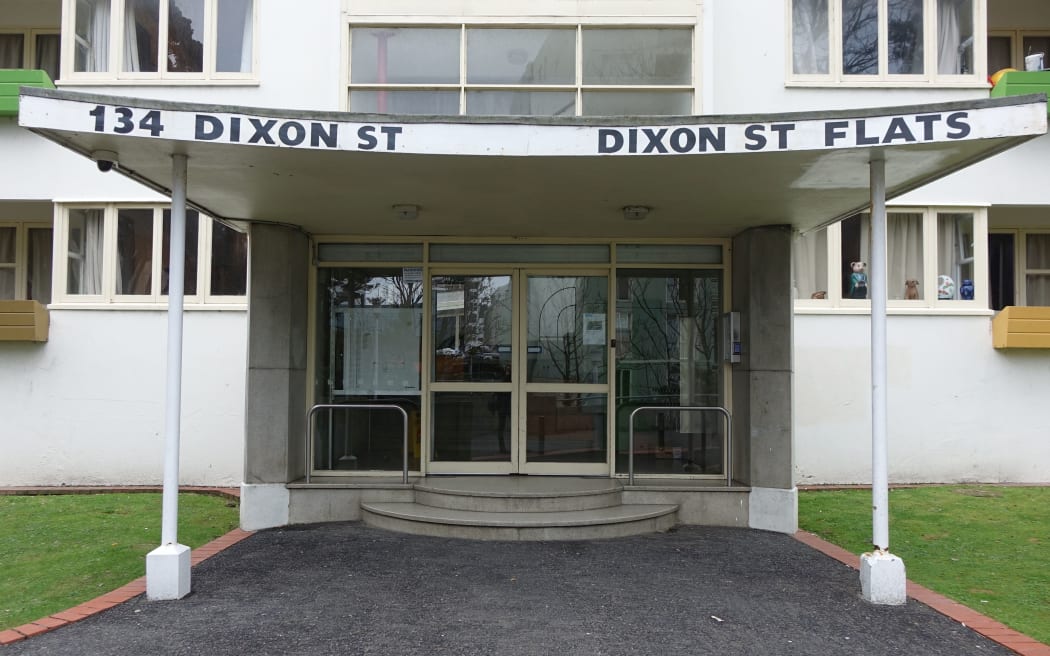A notorious Wellington public housing block is trying to foster more community spirit with a weekly cafe, but some of the flats' elderly residents say they don't feel safe.

The entrance to the Dixon Street flats public housing block in Wellington. Photo: RNZ / Michael Cropp
Robert Scally, an elderly resident of the Dixon Street flats, was found dead in his room earlier this year, two weeks after he died.
Housing New Zealand has now opened up the common room at the top of the 10-storey tall Dixon Street flats and the local church was serving up conversation over cups of tea every Thursday.
Stuart Simpson, a Minister at St John's church across the road, said the cafe was a small but necessary step toward building community.
"Who wants to go home and wonder what's going to be happening in their place? Is there going to be someone who may be drunk on the staircase when you're going up to your room - no, you don't want that. You want a safe place where when you meet people, they know who you are and you can stop and talk about your day," he said.
"Not walk past them quickly and hope they're not going to do anything."
It was a real fear among some of the tenants. Stella lives on the third floor, two doors down from where Mr Scally was found in May. Her unit has been broken into twice, and she said she no longer felt safe there.
"The landlord [said] there was to be strictly no alcohol or drugs in the building and then what do we see? We see people carrying their alcohol, and you can smell drugs. You don't see them taking it but you can smell it each time you catch the lifts," she said.
Stella said people sometimes slept rough in the stairwells.
"They come and help themself to facilities like doing their washing here," she said. "We don't get a chance to do our washing much. We have to wait for hours because those streeties are using it too. It's not fair on us."
Housing New Zealand spokesperson Cassandra Rivers said the agency took anti-social behaviour very seriously and had recently employed a case manager for the site.
One woman said she carried a rape alarm in her pocket when she was inside the complex.
She was too scared to leave her unit after dark - because "psychos" live in the building.
Roberta Burgess, 84, has lived in the building for 29 years and said the cafe had made a difference.
"Most of the people in the flats probably wouldn't know each other if they fell over them, but they come up here, they meet, they greet, they have a cup of coffee," Mrs Burgess said.
"You know what a cup of coffee does to everybody, you sit and you talk for ages."
Mrs Burgess said people used to come up to the common room all the time, but about a decade ago the managers locked it up.
She had not been back inside until she got a coffee there last week.
"You don't even see people from other floors, I can go up and down that lift several times a week and I would be the only in the lift," she said. "You really don't see the people."
Ms Rivers said the agency hoped to invite support services and agencies to come along and use the space.
"We take our role as a social landlord extremely seriously," she said. "In a complex like this where we have a lot of tenants who are living alone, this is a way of bringing them together, giving them the opportunity to engage with one another - it's hugely successful."



